Premium Only Content

Episode 984 Reasons for Church Condemning Freemasonry - Part 4
Leo XIII Describes & Condemns Freemasonry
Papacy ended: 20 July 1903
Created cardinal: 19 December 1853; by Pius IX
Papacy began: 20 February 1878
Given the new general approach of the Conciliar Church toward Freemasonry since Vatican II, and especially the abolition of the automatic excommunication of those who join it or similar anti-Catholic secret societies, there are strange notions being wrongly spread about the real aim of these associations. To clarify what the Catholic position is on this topic, today we bring to our Readers excerpts from an important document by Pope Leo XIII. He spoke out strongly against those secret societies, pointing out their ultimate aim of Naturalism.
He was repeating the warnings of previous Popes – Clement XII in 1738, Benedict XIV in 1751, Pius VII in 1821, Leo XII in 1826, Pius VIII in 1829, Gregory XVI in 1832 and Pius IX in 1846 and 1865 and on four other occasions. After Leo XIII St. Pius X in 1911 confirmed this condemnation. Altogether, Leo XIII spoke out five different times against Freemasonry, but especially in the Encyclical Humanum genus. All these Popes say that a Catholic cannot be Mason.
Leo XIII
’A good tree cannot produce bad fruit, nor a bad tree produce good fruit.’(Mt 7:18) Now, the Masonic sect produces fruits that are pernicious and of the bitterest savor. For, from what We have above most clearly shown, their ultimate purpose forces itself into view - namely, the utter overthrow of that whole religious and political order of the world which Catholic teaching has produced, and the substitution of a new state of things in accordance with their ideas, of which the foundations and laws shall be drawn from mere Naturalism. (n.10) ...
What, therefore, the sect of the Freemasons is, and what course it pursues, appears sufficiently from the summary We have briefly given. Their chief dogmas are so greatly and manifestly at variance with reason that nothing can be more perverse. To wish to destroy the religion and the Church which God Himself has established and whose perpetuity He insures by His protection, and to bring back after a lapse of eighteen centuries the manners and customs of the pagans, is signal folly and audacious impiety. Neither is it less horrible nor more tolerable that they should repudiate the benefits which Jesus Christ so mercifully obtained, not only for individuals, but also for the family and for civil society, benefits which, even according to the judgment and testimony of enemies of Christianity, are very great.
In this insane and wicked endeavor we can see the implacable hatred and spirit of revenge with which Satan himself is inflamed against Jesus Christ. So also the studious endeavor of the Freemasons to destroy the chief foundations of justice and honesty and to co-operate with those who would wish, as if they were mere animals, to do what they please, tends only to the ignominious and disgraceful ruin of the human race." (n. 24)
Therefore, We wish it to be your rule first of all to tear away the mask from Freemasonry, and to let it be seen as it really is; and by sermons and pastoral letters to instruct the people as to the artifices used by societies of this kind in seducing men and enticing them into their ranks, and as to the depravity of their opinions and the wickedness of their acts. ….
As Our predecessors have many times repeated, let no man think that he may, for any reason whatsoever, join the Masonic sect, if he values his Catholic name and his eternal salvation as he ought to value them. Let no one be deceived by a pretense of honesty. It may seem to some that Freemasons demand nothing that is openly contrary to religion and morality; but, as the whole principle and object of the sect lies in what is vicious and criminal, to join with these men or in any way help them cannot be lawful. (n. 31) …
Let No Man Join the Masonic Sect if - He Values His Eternal Salvation
Since the Conciliar Church is coming increasingly closer to Freemasonry, it is opportune to bring to our readers pontifical documents condemning it. In his Encyclical Humanum genus, Pope Leo XIII is formal and explicit in his condemnation of the sect.
Until the new Code of Canon Law, promulgated by John Paul II in 1983, anyone who entered Freemasonry was automatically excommunicated from the Catholic Church. That excommunication, unfortunately, is no longer present in the new Code. This is the reason alleged by progressivists to ingress in Freemasonry, allow Masonic ceremonies in Catholic churches (here, here and here) and visit its Lodges (here, here, here & here ).
We resist this decision of John Paul II, and invite our readers to do the same, continuing to hold the perennial judgment of the pre-conciliar Popes, first expressed by the verdict of Pope Clement XII in 1738, and confirmed by many others that we will reproduce in this section.
Leo XIII
Since we know that Our best and firmest hope of a remedy lies in the strength of that divine Religion which the Freemasons hate in proportion to their fear of it, We hold it therefore to be of supreme importance to utilize all its wonderful salutary power against the common enemy. Accordingly, whatsoever Our predecessors, the Roman Pontiffs, have decreed for the purpose of opposing the designs and endeavors of Freemasonry, and whatever they have enacted to keep men from becoming affiliated to such associations or to withdraw from them if they had the misfortune to be already members, all and each of these measures we ratify and by our Apostolic Authority.
Full of confidence in the goodwill of Christians, We beg and beseech each one, for the sake of his eternal salvation, to consider it a sacred obligation of conscience to never in the least deviate from what the Apostolic See has enjoined in this matter.
We beg and beseech you, venerable brethren, to join your efforts with Ours, and earnestly strive for the extirpation of this foul plague, which is creeping through the veins of the body politic. You are obliged to defend the glory of God and the salvation of your neighbor; and with the object of your strife before you, neither courage nor strength will be wanting. It will be for your prudence to judge by what means you can best overcome the difficulties and obstacles you meet with.
But, as it befits the authority of Our office that We Ourselves should point out some suitable way of proceeding, We wish it to be your rule first of all to tear away the mask from Freemasonry, and to let it be seen as it really is; and by sermons and pastoral letters to instruct the people about the artifices used by societies of this kind in seducing men and enticing them into their ranks, and warn them about the depravity of their opinions and the wickedness of their acts.
As Our predecessors have many times repeated, let no man think that he may for any reason whatsoever join the Masonic sect, if he values his Catholic name and his eternal salvation as he ought to value them. Let no one be deceived by a pretense of honesty. It may seem to some that Freemasons demand nothing that is openly opposed to religion and morality; but, as the whole principle and object of the sect lies in what is vicious and criminal, to join with these men or to help them in any way cannot be lawful.
When Popes prior to VII died did you ever see the freemasons mourn their passing? NEVER! As a matter of Fact when Pope Pius 9th died in 1878 they had to move his body late at night because the freemasons threated to desecrate it and when is was being brought through the streets they threw rock at it.
Now lets see the signs that the church was turned as early as the very Pope who opened VII!
John XXIII's Death Mourned by the Mexican Freemasonry
On the occasion of the death of Pope John XXIII, June 3, 1963, the Mexican Freemasonry paid for an ad to be published in Mexican newspapers.
the original ad by The Mexican Western Grand Lodge published in the June 4, 1963 issue of El Informador.
The translation from Spanish.
THE MEXICAN WESTERN GRAND LODGE
of free and accepted Masons,
at the death of
POPE JOHN XXIII
Publicly expresses its sorrow for the loss of this great man, who made a revolution in the ideas, thoughts and forms of the Roman Catholic liturgy.
THE ENCYCLICALS "MOTHER AND TEACHER" and "PEACE ON EARTH"
Made a revolution in concepts favoring
THE RIGHTS OF MAN AND HIS LIBERTY
Mankind has lost a great man, and we
the Freemasons recognize his elevated principles, his humanitarianism and his condition as a GRAND LIBERAL.
Guadalajara, Jalisco, Mexico, June 3, 1963
THE MEXICAN WESTERN GRAND LODGE
Jose Guadalupe Zuno Hernandez, Esquire
Bishop receives Masonic honors
The short man pictured on the screen with his shirt collar open is a Catholic Bishop. His name is Demetrio Valentini and he presently carries out his functions as Bishop of Jales, a city in the State of Sao Paulo, Brazil.
This photo documents his welcome into the local Masonic Lodge, where he went to give a talk on the need for dialogue between the Catholic Church and Freemasonry. The ceremony took place on April 10, 2012, the date of the 53rd anniversary of that Lodge.
In his address, Valentini, age 71, emphasized that he plans to use the four years he still has before his retirement to work for the union between the Church and Freemasonry. He said he hopes that he can influence the whole country to follow the same path. He also recalled the efforts of late Bishop Ivo Lorsheider who also pursued this goal.
Besides being favorable to Freemasonry, Bishop Valentini is also a communist. Along with two other Brazilian red Bishops - Pedro Casaldaliga and Tomas Balduino - they sent a formal letter of support to the terrorist candidate Dilma Rousseff, today's Brazilian President.
Brazilian Bishop gives a speech in a Masonic Lodge
On June 25, 2009, Bishop Lelis Lara of Itabira, State of Minas Gerais, gave a lecture in the Masonic Lodge of that city. Bishop Lara, above center standing, is also a canon law counselor to the Brazilian Conference of Bishops. The speech, open to the public, was about the relations between the Catholic Church and Masonry.
Lara said that he was there in the wake of Vatican II's openness to the modern world, and that it was this new attitude that made the Church change her severe laws against Freemasonry. Indeed, he mentioned that in the 1917 Code of Canon Law, canon 2335 forbade any Catholic to enter Masonry with the penalty of automatic excommunication. After Vatican II, however, the 1983 Code in its canon 1374 did away with that excommunication and does not even name Masonry when it generically tells Catholics not to enter associations that "plot against the Church."
Bishop Lara pretends that we need to distinguish between two Freemasonries, one practical and another philosophical. According to him, only the latter - and then only after 1877 - was against God. Before that date, both Masonries were good and would honor the Great Architect of the Universe, God. Today, at least the practical Masonry continues to be so. As a consequence, Catholics should live like brothers with Freemasons in order to fulfill the promise of Jesus Christ that all men be one.
Justifying his visit to a Masonic Lodge, Lara mentioned two precedents that took place in Brazil: on Christmas 1975, Card. Avelar Brandão Vilela of Salvador, Bahia, said a Mass in the local Masonic Temple; on that occasion he received a Masonic decoration. In 1976, Card. Paulo Evaristo Arns of São Paulo did the same in his city.
To commemorate Bishop Lara's talk, the Grand Master of the local Lodge offered him a bronze plaque.
Fr. Hans Kung Receives an Award
from Freemasonry
While he was still in his 30s, Fr. Hans Kung was chosen as official perito of the Swiss Episcopate at the Second Vatican Council. He replaced Fr. Hans Urs von Balthasar, who was vetoed for being too bold in his book Raze the Bastions.
During the first session of the Council, one of the blows planned by the conservative Roman Curia against the invasion of Progressivism was to condemn a book by Kung, the youngest representative of the Nouvelle Theologie [New Theology]. In fact, that condemnation was made, and the book was removed from Catholic bookstores. However, the prohibition was almost immediately suspended by an order coming from a "higher authority."
After Vatican II, Fr. Kung along with Fr. Joseph Ratzinger were in charge of Ecumenical Studies at the College of Theology in the University of Tubingen. At that time, Fr. Kung wrote The Church, his principal work, and thanked Fr. Ratzinger for his collaboration.
In 1975 and 1979, Kung received two notifications from the Congregation for the Doctrine of the Faith, whose Prefect was Card. Joseph Ratzinger, to change some theological concepts in two of his works - The Church and a preface for a book by another author. Otherwise, he could no longer be considered a "Catholic theologian" and "teach at Catholic institutes." He refused.
At the time, he was director of and professor at the College of Catholic Theology of the Theological Institute in the University of Tubingen. A little before the ban from teaching as a Catholic theologian took effect, the authorities of Baden-Wurtemberg decided to make the College of Theology independent from Catholic authorities. Instead, it would rely only on the secular authority of the University of Tubingen. With this legal sleight of hand, Kung was allowed to retain his same teaching position, the ban having no effect.
In September 2005, Joseph Ratzinger, now Benedict XVI, received Fr. Hans Kung at the Vatican for a cordial three-hour-meeting. One of the topics of this long conversation was a new book by Kung, A Global Ethic for Global Politics and Economics. After the meeting, a Vatican official press report was released with these words of praise about Kung's book:
"The Pope welcomed Professor Kung's efforts to contribute to a renewed recognition of the essential moral values of humanity through the dialogue of religions and in the encounter with secular reason. He stressed that the commitment to a renewed awareness of the values that sustain human life is also an important objective of his own pontificate." For the full text of the Press Release, click here.
Recently, this same book was praised by the German Freemasonry as promoting its ideals.
Masons at a Brazilian Cathedral
The photo above registers the presence of Freemasons of the State of Pernanbuco, Brazil, surrounding Bishop Bernardino Marchio of Caruaru at his Cathedral after Sunday Mass on December 21, 2008.
The attendance of representatives of various Masonic Lodges of the area at that Catholic Cathedral was to pay a homage to the Bishop for his "admirable performance in the government of his Diocese." As the Mass ended, Antonio Ferreira, third from the left, Grand Master of the Grand Orient of Pernambuco, went to the pulpit to praise Bishop Marchio and conferred on him the Masonic Award for Merit of the State of Pernanbuco. Present at the Mass were about 800 Catholic faithful, who witnessed the symbolic event.
In his turn, the Prelate delivered a short speech, thanking the Grand Master for the award, calling the event as a "joyful feast" and ending with these words: "So, may the blessings of the Great Architect of the Universe maintain us all as we are now, joyful, united and happy as our Patron taught: Ut unum sint."
Among the representatives of Freemasonry was Catholic priest Fr. Aloisio Guerra, second from the left, who is also Venerable Master of the May 13 Lodge.
The Catholic Church always taught that Freemasonry was one of her worst enemies; the Conciliar Popes wiped away that objective image. Today Masons are considered just "men of good will." Cui bono?
These data and photo were taken from the Catholic blog Fidei Depositum and the website of the Spanish-speaking Masons in New York
Pope JPII Rewarded by Freemasonry
As the steps of the beatification process for John Paul II are being rushed forward, we thought it would be interesting to contribute to it by reminding the public of an award given to him by the Italian Freemasonry.
The text of the news report speaks for itself regarding how Pope Wojtyla helped to spread the ideals of those enemies of the Catholic Church, and the high esteem they had for him.
the news report from the Brazilian daily O Estado de S. Paulo; below, our translation from Portuguese.
John Paul II refuses award from the Freemasonry
Vatican City - Pope John Paul II will return to the Grand Orient of Italy Masonic Lodge the decoration of the Galileo Galilei Order granted to him for his contribution in spreading the ideals of fraternity and understanding. These ideas, the lodge stresses, are the same ones defended by Freemasonry.
"A Pope should not accept awards or decorations of any type," affirmed Vatican sources quoted by AGI agency.
(O Estado de S. Paulo, December 23, 1996)
So now my Friend John the Mason is educated and if he continues in his ways all I can do is pray for his immortal soul but he can not say he did not know. But do you know the bigger sin committed my most Catholics and especially those that don’t practice the faith anymore? Indifferentism. This is by far the worst of all the ISM’s created by the Free Masons. Catholics just don’t care. Oh well.
-
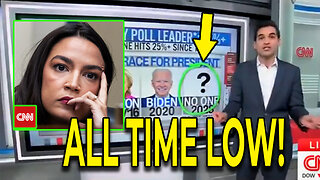 15:18
15:18
T-SPLY
4 hours agoCNN DROPPED a NUKE On Democrats - Worst Polls Ever!
1.91K4 -
 7:21
7:21
SKAP ATTACK
7 hours agoNBA Execs Think the Bubble Championship is a Joke
2.34K1 -
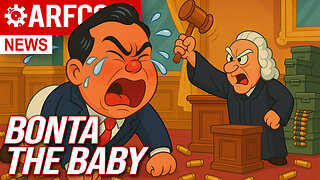 8:29
8:29
ARFCOM News
5 hours agoAG ~~REFUSES~~ To Stop Enforcing Unconstitutional Law | How Trump Plans To Give Guns Back To Felons
2.11K2 -
 LIVE
LIVE
LFA TV
23 hours agoLFA TV ALL DAY STREAM - FRIDAY 8/1/25
753 watching -
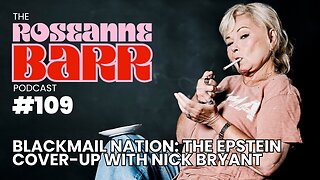 1:23:12
1:23:12
Roseanne Barr
3 hours agoBlackmail Nation: The Epstein Cover-Up with Nick Bryant | The Roseanne Barr Podcast #109
73.9K37 -
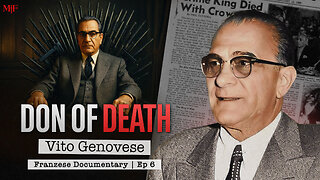 26:40
26:40
Michael Franzese
3 hours agoThe Self-Proclaimed King of the Mafia: Vito Genovese’s Fatal Throne
19.1K2 -

Nerdrotic
5 hours ago $6.84 earnedWe Stand Behind Sydney Sweeney | Naked Gun | Fantastic Flop? - Friday Night Tights 365
46.2K15 -
 1:02:28
1:02:28
Sarah Westall
3 hours agoTrump’s Economic Plan will Change the World Economic System. Will it Work? w/ Andy Schectman
21.8K5 -
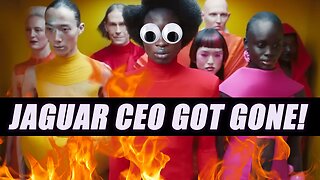 10:22
10:22
Clownfish TV
5 hours agoJaguar CEO OUT After 'Woke' Rebrand Backfires!
11.1K6 -
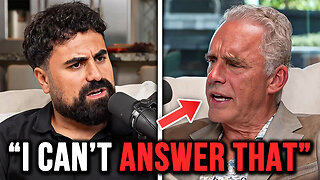 9:24
9:24
Faith Frontline
6 hours agoJordan Peterson CAUGHT OFF GUARD by George Janko’s Jesus Question
14.7K25